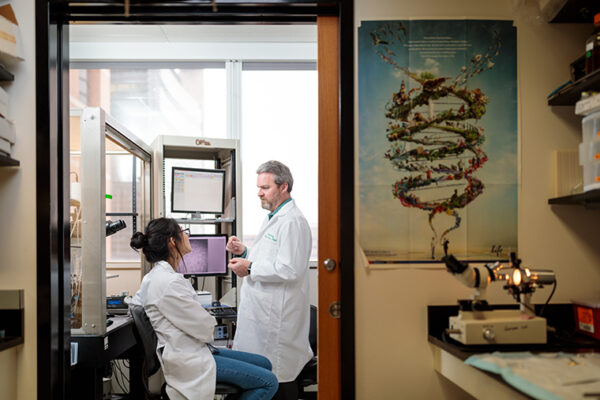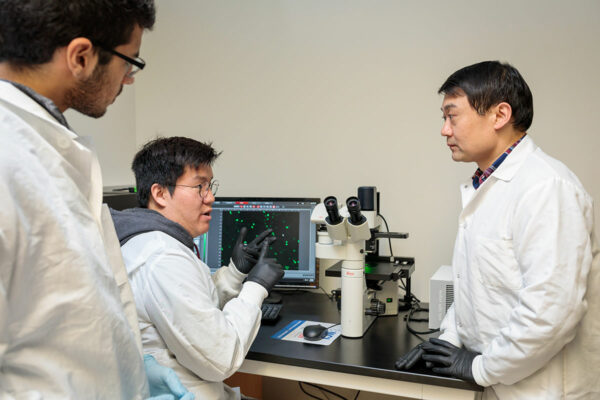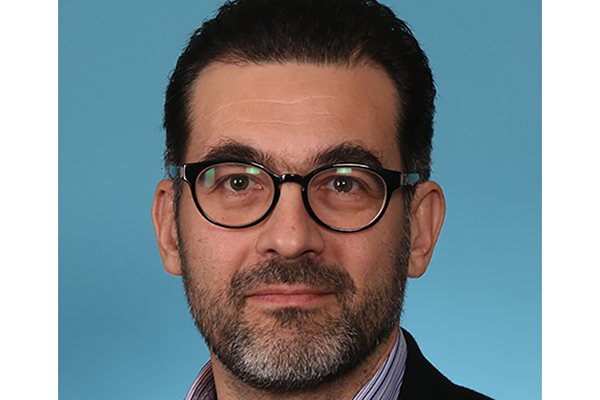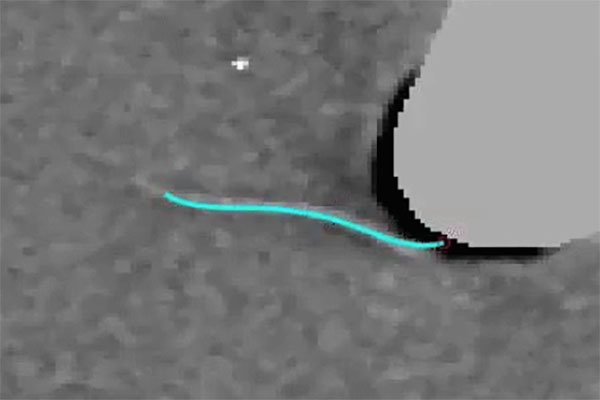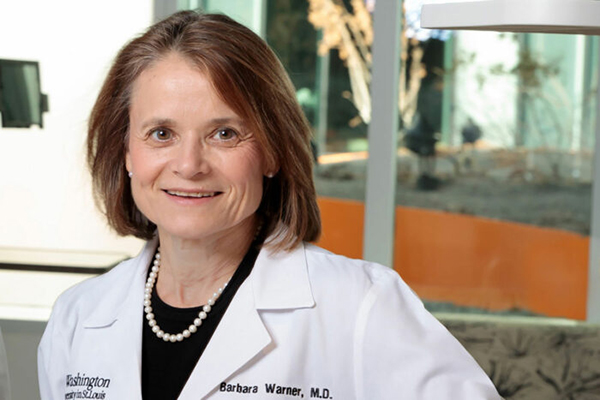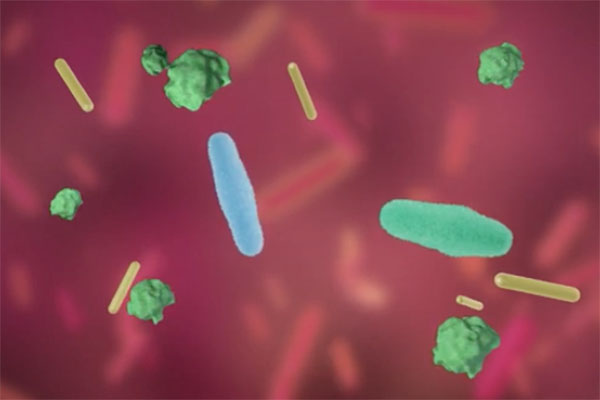Washington People: Robert Gereau
Robert W. Gereau, the Dr. Seymour and Rose T. Brown Professor of Anesthesiology at Washington University School of Medicine, is working to discover the genetic and molecular roots of pain, with a goal of reversing the processes that cause pain and make it so disabling.
Morris lab among finalists in biomedical research competition
Developmental biologist Samantha Morris, at the School of Medicine, and her lab have developed a cellular tracking system. Watch a video to learn about the work, which is among the finalists in the STAT Madness competition. Vote online in the semifinal round through Tuesday.
‘Jumping genes’ drive many cancers
Mistakes in DNA are known to drive cancer growth. But a new study, from Washington University School of Medicine in St. Louis, heavily implicates a genetic phenomenon commonly known as “jumping genes” in the growth of tumors.
Kefalov receives Bressler Prize for vision research
Vladimir Kefalov, professor of ophthalmology and visual sciences at Washington University School of Medicine in St. Louis, has been awarded the 2019 Bressler Prize by the Lighthouse Guild, an organization dedicated to reducing the burden of living with vision loss.
Making waves: Researchers shed light on how cilia work
An interdisciplinary team of researchers from the McKelvey School of Engineering and the School of Medicine have found the most efficient length for cilia, the tiny hair-like structures designed to sweep out the body’s fluids, cells and microbes to stay healthy.
Warner named director of newborn medicine division
Barbara B. Warner, MD, a physician-scientist noted for her commitment to critically ill infants, has been named director of the Division of Newborn Medicine at Washington University School of Medicine in St. Louis.
Rineys give $15 million to develop, test therapies for neurodegenerative diseases
The School of Medicine has received a $15 million gift from Paula and Rodger Riney aimed at accelerating research and developing new treatments for two major neurodegenerative diseases: Alzheimer’s disease and Parkinson’s disease.
Probiotic bacteria evolve inside mice’s GI tracts
Probiotics – living bacteria taken to promote digestive health – evolve once inside the body and have the potential to become less effective and sometimes even harmful, according to a new study from the School of Medicine. The findings suggest that developers of probiotic-based therapeutics must consider how the probiotics might change after administration.
Yi awarded Sloan Research Fellowship
Jason Yi, assistant professor of neuroscience at Washington University School of Medicine in St. Louis, has received a prestigious 2019 Sloan Research Fellowship, which supports promising early-career scientists.
Home-based lifestyle intervention minimizes maternal weight gain
Weight gain during pregnancy and postpartum are important causes of long-term weight gain and the development of obesity-related diseases among women. A new study from Washington University in St. Louis finds providing a home-based lifestyle intervention effectively minimizes excess maternal weight gain during pregnancy and through 12-months postpartum in underserved African American women with obesity.
View More Stories
